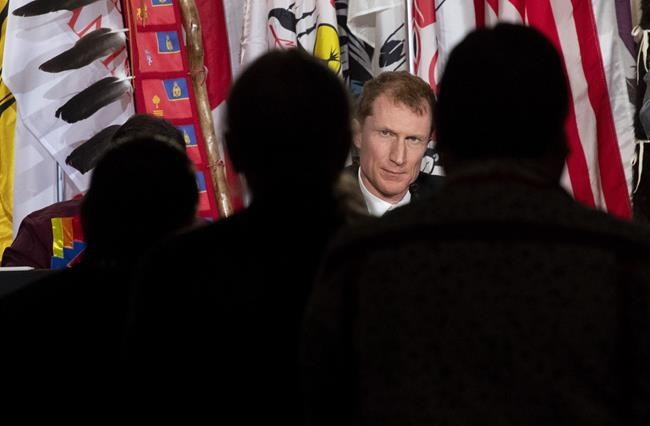Health researcher hopes COVID-19 means new policies for Indigenous peoples
Advertisement
Read this article for free:
or
Already have an account? Log in here »
To continue reading, please subscribe:
Monthly Digital Subscription
$0 for the first 4 weeks*
- Enjoy unlimited reading on winnipegfreepress.com
- Read the E-Edition, our digital replica newspaper
- Access News Break, our award-winning app
- Play interactive puzzles
*No charge for 4 weeks then price increases to the regular rate of $19.00 plus GST every four weeks. Offer available to new and qualified returning subscribers only. Cancel any time.
Monthly Digital Subscription
$4.75/week*
- Enjoy unlimited reading on winnipegfreepress.com
- Read the E-Edition, our digital replica newspaper
- Access News Break, our award-winning app
- Play interactive puzzles
*Billed as $19 plus GST every four weeks. Cancel any time.
To continue reading, please subscribe:
Add Free Press access to your Brandon Sun subscription for only an additional
$1 for the first 4 weeks*
*Your next subscription payment will increase by $1.00 and you will be charged $16.99 plus GST for four weeks. After four weeks, your payment will increase to $23.99 plus GST every four weeks.
Read unlimited articles for free today:
or
Already have an account? Log in here »
Hey there, time traveller!
This article was published 17/05/2020 (2034 days ago), so information in it may no longer be current.
SASKATOON – A health researcher studying COVID-19 as part of a national immunity task force hopes the pandemic elevates concern for persistent health issues, such as inadequate housing, for Indigenous people in Canada.
“This pandemic has opened the eyes for a lot of people across Canada,” said Dr. Carrie Bourassa, scientific director of the Institute of Indigenous Peoples’ Health.
“I would like to think that what these … studies will do is change a lot of policies for Canadians and for Indigenous people.

“I hope that this will also raise the bar and help people to understand that equity has not been reached for Indigenous peoples in Canada.”
Bourassa was recently tapped to come up with a plan to engage First Nations, Metis and Inuit people in studies about how the virus has spread and who is immune. The Anishinaabe-Metis professor at the University of Saskatchewan said an Indigenous advisory circle will soon be announced for the two-year project.
It’s critical Indigenous people are included in such studies, she said, because they could be more susceptible to the virus, given factors such as overcrowded housing and poor access to healthy food and clean water.
“Those are now huge mitigating risk factors,” she said. “It gets exasperated in times of a pandemic.”
The federal government has reported at least 190 confirmed cases of COVID-19 on reserves in Britsh Columbia, Alberta, Saskatchewan, Ontario and Quebec.
Communities in Saskatchewan’s far north, including La Loche, a Dene village 600 kilometres northwest of Saskatoon, have been dealing with an outbreak after the virus travelled there with someone who had been at an oilsands work camp in northern Alberta.
Indigenous Services Minister Marc Miller has said that coming out of the pandemic there will be a need to come up with a clear plan to address realities such as overcrowding, historic under-funding of health services and a high rates of diabetes.
Bourassa said access to health care is a major issue, including future access to a potential vaccine.
“It’s often the case that marginalized populations don’t get access to treatment.”
— By Stephanie Taylor in Regina
This report by The Canadian Press was first published May 17, 2020


